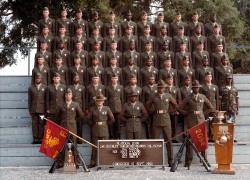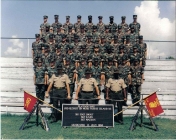USMC
The electronic switching operator/maintainer facilitates the installation, operation, restoration, and management of circuits and trunks within the Digital Technical Control (DTC) switchboard. The commercial switch will terminate Integrated Services Digital Network (ISDN), commercial Public Switched Telephone Network (PSTN), and Defense Switched Network (DSN) services, both loops and trunks; and will provide these services into the deployed switch network.
Field radio operators employ radio to send and receive messages. Typical duties include the set up and tuning of radio equipment including antennas and power sources; establishing contact with distant stations; processing and logging of messages; making changes to frequencies or cryptographic codes; and maintaining equipment at the first echelon.
- FIELD 06, COMMUNICATIONS
- Hits: 10652
MOS 0623, Tropospheric Scatter Radio Multi-channel Equipment Operator
The SHF satellite communications operator-maintainer PMOS identifies Marines who emplace, interconnect, energize, and verify the operation of SHF satellite terminal equipment.
Privacy Policy | Terms of Service | Sitemap
(C) 2009-2021 The Military Yearbook Project
Contact: webmaster-(at)-militaryyearbookproject.org




